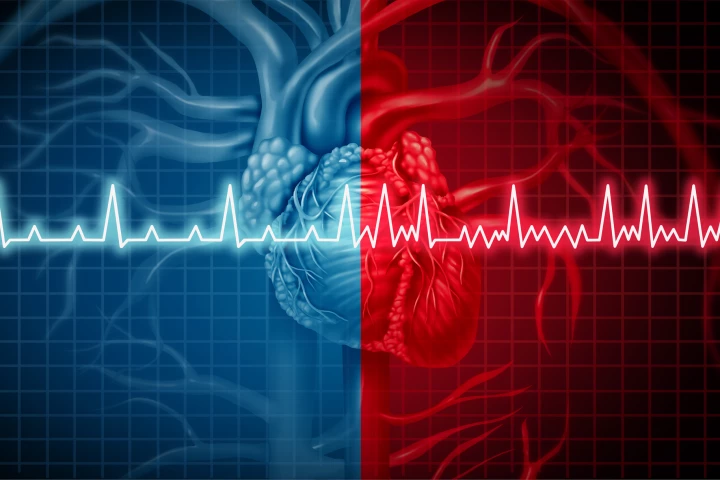Cardiac
-
A new injectable, temporary pacemaker could help correct a heart arrhythmia in an emergency. This nanoparticle gel can regulate the heart’s electrical signals for up to five days before dissolving harmlessly in the body.
-
Smoking, obesity, and stress. They're all common causes of damaging cardiac events. However, a just-published study says a new culprit should be added to the list of the risks that can hurt our hearts: constipation.
-
It turns out that blasting people with shockwaves during open-heart surgery is a really good idea. That's what researchers found who used the technique to reactivate heart cells and improve the post-op lives of patients in a groundbreaking study.
-
The warning signs of a deadly out-of-hospital sudden cardiac arrest differ significantly between the sexes, a study has found. Researchers hope their research will improve survival rates and educate people about when to call emergency services.
-
For all they do for us, our hearts aren't very good at repairing themselves. Now however, inspired by young hearts, researchers have transmuted scars into healthy tissue in mice, walking back the damage brought about by heart attacks.
-
Quick, accurate detection of a blocked artery is critical following a cardiac arrest admission to hospital. Doctors are hoping a new wrist device, currently undergoing human trial, will save both them and their patients precious time in an emergency.
-
Atrial fibrillation affects millions of people worldwide. Researchers have now developed a new procedure that shows great promise as a safe, quick and effective alternative to existing surgical methods used to treat the condition.
-
Researchers have demonstrated a new technique for helping heart cells regenerate after a heart attack, using mRNA to return the cells to a stem-cell-like state. Tests in mice showed drastic improvements to heart function a month after a heart attack.
-
Researchers in the US have found changes to electrical activity in the heart can help predict which hospitalized COVID-19 patients are more likely to decline and die. The biomarker is easily measurable and may predict death several days in advance.
-
Scientists have made an intriguing discovery that could see radiation therapy become a less invasive treatment for heart arrhythmia. The technique seems to activate the heart cells to revert to a younger state and repair the tissue.
-
Researchers have deployed drones carrying defibrillators to the sites of real-world cardiac arrests for the first time. On average, the unmanned aircraft arrived well ahead of ambulance crews, with the medical devices safely in tow.
-
Heart cells don’t naturally replenish, so after a heart attack it stays permanently damaged. Cambridge researchers have now stumbled onto genes that appear to trigger heart cell regeneration – and they did so by accident, while researching cancer.
Load More











